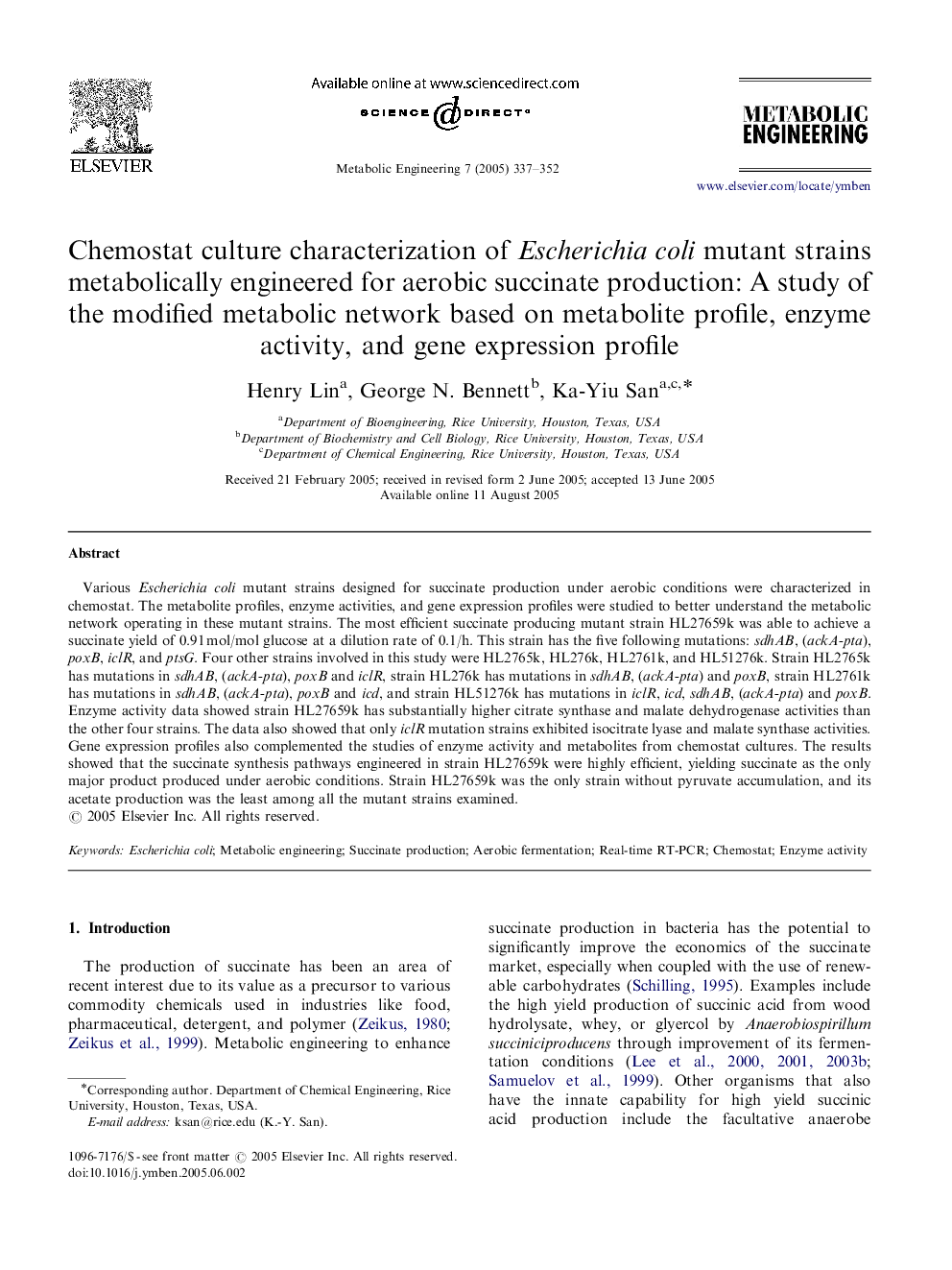| Article ID | Journal | Published Year | Pages | File Type |
|---|---|---|---|---|
| 9607647 | Metabolic Engineering | 2005 | 16 Pages |
Abstract
Various Escherichia coli mutant strains designed for succinate production under aerobic conditions were characterized in chemostat. The metabolite profiles, enzyme activities, and gene expression profiles were studied to better understand the metabolic network operating in these mutant strains. The most efficient succinate producing mutant strain HL27659k was able to achieve a succinate yield of 0.91Â mol/mol glucose at a dilution rate of 0.1/h. This strain has the five following mutations: sdhAB, (ackA-pta), poxB, iclR, and ptsG. Four other strains involved in this study were HL2765k, HL276k, HL2761k, and HL51276k. Strain HL2765k has mutations in sdhAB, (ackA-pta), poxB and iclR, strain HL276k has mutations in sdhAB, (ackA-pta) and poxB, strain HL2761k has mutations in sdhAB, (ackA-pta), poxB and icd, and strain HL51276k has mutations in iclR, icd, sdhAB, (ackA-pta) and poxB. Enzyme activity data showed strain HL27659k has substantially higher citrate synthase and malate dehydrogenase activities than the other four strains. The data also showed that only iclR mutation strains exhibited isocitrate lyase and malate synthase activities. Gene expression profiles also complemented the studies of enzyme activity and metabolites from chemostat cultures. The results showed that the succinate synthesis pathways engineered in strain HL27659k were highly efficient, yielding succinate as the only major product produced under aerobic conditions. Strain HL27659k was the only strain without pyruvate accumulation, and its acetate production was the least among all the mutant strains examined.
Keywords
Related Topics
Physical Sciences and Engineering
Chemical Engineering
Bioengineering
Authors
Henry Lin, George N. Bennett, Ka-Yiu San,
